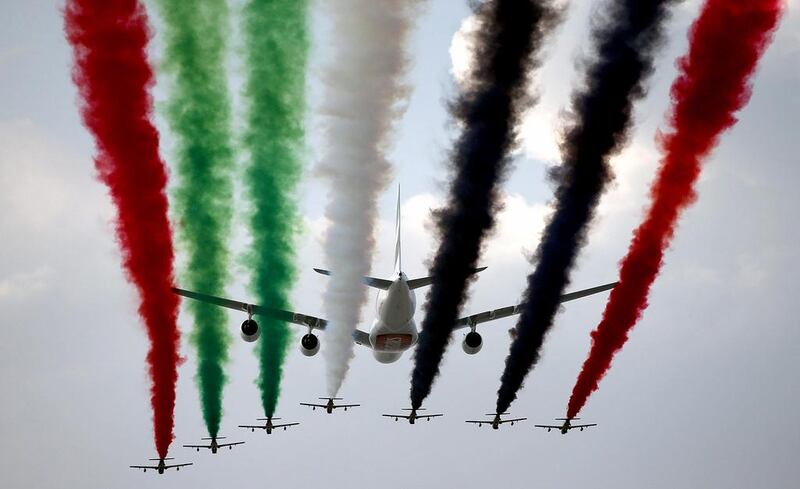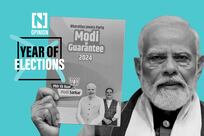DAVOS // Emirates Airline is reviewing its fare structure as a result of the fall in global energy prices, which could eventually mean lower fares for passengers.
Sir Tim Clark, the airline president, made the disclosure at the World Economic Forum annual meeting in Davos.
"The oil price fall has given us the opportunity to review our whole pricing structure," he said. "We've been trying to get a better handle on what's good for us and good for the passengers.
“We initiated the review last November as oil prices were falling. Falling fuel costs were a catalyst, but we’ve been thinking about it for some time in light of the changing way people use airlines in the digital age.
“We’re asking what we can pass on to the consumer, but at the same time maintain the margins we need for investment in expansion. We want to pass value through to the passenger, but we have to balance that with the need to meet our own key performance indicators, our profit and return levels.”
The International Air Transport Association (Iata) expects consumers to benefit from lower oil prices this year. The aviation body predicts airfares will fall by an average of 5.1 per cent compared with 2014.
Mr Clark said he had already received one set of proposals from the executive team charged with the review, and that by April he would be in a position to unveil a "new type of pricing structure" for Emirates.
“The pricing system needs greater simplicity. It changes day by day and by time of day and that can be simplified,” he said.
One key issue is the level of fuel surcharge. “The whole industry has to get to grips with this,” he said. “Some airlines – in the US for example – are making money for the first time in a decade, so it’s hard for them to say they’re going to drop prices immediately.”
He added, though, that the new pricing structure could “eventually” bring lower fares for passengers.
Lower fuel charges are likely to bring a “huge boost” to the bottom line for Emirates in the current financial year, he said, helping to offset the effect of the temporary closure last year of one runway in Dubai and a fall-off in Russian traffic.
“Russia has taken a hit. We’ve reduced capacity to Moscow and St Petersburg and put on smaller planes for those routes,” he said.
He dismissed recent reports that Emirates had considered an initial public offering with a US$40 billion market valuation.
“An IPO has not been discussed by Dubai or Investment Corporation of Dubai [the government investment body that owns Emirates] or anyone else who matters,” he said.
“I’ve worked with Sheikh Ahmed [the Emirates Group chairman] for many years and we have never discussed it. We don’t need an IPO. We already generate lots of cash to fund our expansion plans.”
Mr Clark also criticised suggestions that an IPO would help ensure greater transparency.
“If it’s a matter of transparency, I’d have to say we’re already more transparent than many companies that are listed. We’re signed off by PwC and we have any number of forensic ferrets going over our books,” he said. “If there had been any truth in the allegation of big state subsidies to Emirates, the European airlines would have pinned it on us years ago. Now even they accept that we’re transparent. It’s pitiful what they’ve resorted to over the years to brand us with the subsidies brush.”
Mr Clark said that Emirates, which celebrates its 30th anniversary later this year, had brought a new business model to the global aviation industry.
“I just do not accept that the airline business is cyclical, and that airlines will inevitably go out of business in the end,” he said. “The ones who’ve disappeared in the past – like Pan Am and TWA – had different business models. And none of them had Dubai, with its geocentricity. None of the legacy carriers had the kind of thinking we have and the natural aviation attractions of a domestic hub like Dubai.
“Look at Australia. The Europeans like British Airways and others just left that market to us. Africa is the same story. The US carriers are nowhere in Africa. They’ve left it to us to do that business, and we’re very happy to do so.”
fkane@thenational.ae
Follow The National's Business section on Twitter





